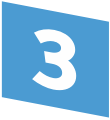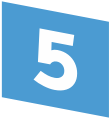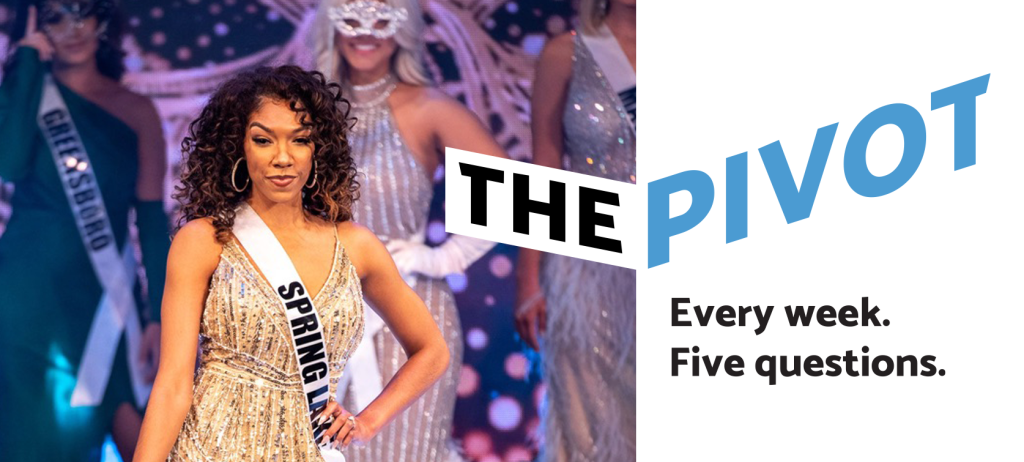Jessica Howard strives to uplift women’s voices in pursuit of health equity and well-being.

What’s your role in public health?
I’m a Master of Healthcare Administration (MHA) student preparing for graduation in May! Upon graduation, I will begin an administrative fellowship with the Duke Private Diagnostic Clinic.
I have always been interested in applying the business side of health care to influence policy change with the hope of inspiring excellence within the standard of care. I want to encourage this at every touch point for patients. I’m largely focused on operations and strategy and want to do research in the long term about women’s health equity and maternal mortality. Those research topics hit close to home for me, and I definitely want to have an impact in that in that realm.
[Editor’s note: Jessica Howard received the Melton Family Scholarship. Jessica Melton, MHA ’07 (health policy and management), who serves on the School’s Public Health Foundation board, and her husband, Doug Melton, PhD ’10 (health policy and management), endowed this scholarship to provide women and minorities with support to pursue opportunities in health care leadership.]

Can you describe your focus area in one sentence?
I am seeking to inspire change through equity and excellence as I pursue my career in quality improvement, operations and strategy.
In my younger years, I had this idea of wanting to be a CEO. I used to think, “I’m successful once I’ve become a CEO or president of some organization.” Now, I’ve learned that it doesn’t take a certain level or a certain title to have impact and make the change that I want to accomplish in my career.
And, for me, the draw of this field was never about a title or a salary or the prestige. It’s always been about serving people: Being an advocate and catalyst for the communities that I’m part of. Being a change agent and helping people take ownership of their health and wellness. Giving people a voice so they can advocate for themselves in health care settings.
You’re vulnerable as a patient. And — while I’m not a caregiver, a physician or on the front lines, so to speak — I want a certain air of excellence to permeate whatever organization I’m in so that patients don’t have to feel so vulnerable. I want people to feel empowered to get the care they need and deserve.

What brought you to public health?
I majored in marketing, and I always thought I would be running advertisements in some Fortune 500 corporate office. Then, an opportunity at a small health system in East Tennessee fell into my lap — it was a human resources internship within a health care setting, and that was the first time I had exposure to the business functions of health care. During that experience, a few college mentors connected me to experts in the industry, and that’s how I started exploring what health care administration could look like for me.
I always wanted to be at UNC. There was no doubt about it! I knew that I would pursue my graduate degree here, but prior to discovering health care administration, I thought that I might study for a Master of Business Administration (MBA) versus an MHA.
After connecting with Jeffrey Simms, he and I had extensive conversations about the Gillings School. When I visited Gillings, I got that spark — the same bubbly feeling I had when I visited the University of Tennessee Knoxville, where I got my undergraduate degree. I just knew that Gillings would give me that community, that home away from home, that support system I would need to pursue this graduate degree, especially being 12 hours away from my family.

How have you pivoted in response to the coronavirus pandemic?
When the world started shutting down in March 2020, I had already accepted my admission as a residential student and had started making plans to move from my home in Tennessee. Suddenly, I was faced with the question of whether to move at all when we were not going to have classes in person.
When I came to North Carolina to tour apartments, my mom and I had a really deep conversation and decided that, despite the academic changes, it was time for me to make the move. It was difficult — this was my first time being so far away from home, having to pay rent all by myself, having to work part-time to make sure all my needs and financial obligations were met.
But even though that transition was hard, I never felt like I was flailing. Even when I couldn’t travel to see my family and couldn’t be as connected as I wanted to be, I never felt alone at Gillings. That’s how I knew I had made the right decision in coming here.

Who are you when you’re at home?

Jessica competes on the Miss North Carolina USA stage.
I am very interested in pageantry. I grew up watching pageants on TV, and I always knew that I wanted to be in that world. The first Miss USA I can remember watching was Rachel Smith, Miss USA 2007. She was a woman of color from Tennessee, and it made me think, “That could be me.” And then the following year, Crystal Stewart — a woman of color from Texas — won Miss USA, and I thought, “OK, that’s two times in a row. I can do this.”
I wasn’t sure how to break into it, but in 2016, I received a brochure in the mail from the Miss Tennessee USA organization inviting me to apply to compete. And I thought, “Why not? You’ve always wanted to do it. Here’s the pathway opening for you.” So, I did it. I didn’t place, but I did get to have the experience. And last year, after moving and getting settled here, I competed again on the Miss North Carolina USA stage.
I’ve been hugely inspired by women inside and outside the industry. Pageantry, for me, is so much more than the glitz and glam and photo shoots you see in the media. It’s really about sisterhood and having the opportunity to positively affect women on a large scale. That’s something I’m passionate about. It’s the reason I write a blog and the reason I’m pursuing health care as a career. Pageantry gives me a chance to showcase that, no matter your age, no matter where you are, no matter your interest, you can do hard things. You can do fantastic things.
This year, I approached my pageant training by shifting my perspective inward: how I thought about myself, how I spoke to myself, how I treated myself — all the internal work that a lot of us don’t want to admit to having to do because we’d like to think we already have it together. And that really impacted how I approached the Miss North Carolina USA pageant this year.
This year’s event was so fulfilling. I connected with people — pageant sisters — who I can call genuine friends. The short weekend of the pageant comes and goes so fast, but the connections that you make are unique. We were all on the path to accomplish this oddly specific goal, but the stories of our journeys to get there were so different. It’s a beautiful way to connect with people.
This year, I placed Top 16 — my first time ever placing and hearing my name called — and it was very emotional. Though I didn’t make it to the to the progressive rounds of the finals, I spent the rest of the night feeling so fulfilled and genuinely happy for my sister queens who did progress. It’s a wonderful sensation to support amazing, genuine people in their endeavors.
In addition to that, I love to long-distance run and hike. I’m a crafty person and do a lot of DIY home decor that I sell on my Etsy store.
I also author the blog I mentioned before, which is called the “Journey Journal.” I use it to not only journal about the lessons I’ve learned in my own life, but also to help others navigate their journeys. The tagline I use is: “You never become; you’re always becoming.” To me, that means don’t get complacent, know where you are, and don’t get bogged down in your current circumstances and situation. Know that every day you wake up, you’re on a new journey, and you must focus on the greater purpose you’ve been called to.
Read more interviews in The Pivot series.
Published: 04/14/2022

